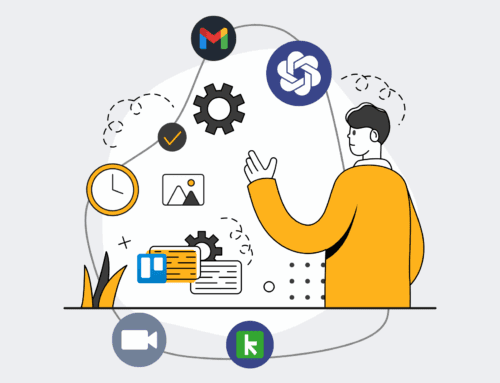Demystifying AI: How Recruiters Can Understand and Leverage Parsing Technology
In the rapidly evolving landscape of talent acquisition, artificial intelligence often feels like a nebulous, intimidating force. Recruiters, already stretched thin, are bombarded with promises of AI-powered solutions, yet many remain skeptical or unsure how to genuinely harness these technologies beyond buzzwords. One area where AI has profoundly impacted — and often confused — the recruiting process is parsing technology. Far from a simple keyword scanner, modern AI parsing is a sophisticated engine designed to distill vast amounts of unstructured data into actionable insights. At 4Spot Consulting, we believe in demystifying these powerful tools, transforming them from perplexing concepts into strategic assets that genuinely save you time and elevate your hiring.
The core challenge for any recruiter isn’t a lack of candidates; it’s a deluge of data. Resumes, cover letters, online profiles, portfolios—each represents a rich vein of information that, without efficient processing, becomes an insurmountable manual task. Traditional parsing tools often fell short, acting as little more than advanced search functions, prone to errors, and missing the nuanced context that human recruiters instinctively grasp. This is where the evolution of AI-driven parsing makes a fundamental difference, shifting from pattern matching to genuine comprehension.
Beyond Keywords: The Evolution of AI-Powered Parsing
Imagine a system that doesn’t just identify “Project Manager” but understands the *scope* of projects managed, the *type* of methodologies used (Agile, Scrum, Waterfall), and the *impact* of those projects on business outcomes. This is the promise of contemporary AI parsing. These advanced systems leverage natural language processing (NLP) and machine learning (ML) to interpret, rather than just extract. They can infer soft skills from narrative descriptions, differentiate between various forms of experience, and even assess cultural fit indicators if trained on relevant data sets. For recruiters, this means moving beyond the superficial and diving deeper into a candidate’s true potential, often before ever speaking to them.
The beauty of this evolution lies in its capacity to handle the sheer volume and variability of human language. Resumes are not standardized forms; they are highly individualized narratives. An AI parsing engine, through continuous learning, becomes adept at recognizing synonyms, acronyms, industry-specific jargon, and even grammatical nuances that might trip up a less sophisticated system. This precision significantly reduces false positives and ensures that valuable candidates aren’t overlooked due to minor formatting differences or less-than-perfect keyword alignment.
Unlocking Efficiency and Accuracy: The Recruiter’s Advantage
The immediate, tangible benefit for recruiters is a dramatic increase in efficiency. Imagine the hours saved when thousands of applications are not just sorted, but intelligently categorized and ranked based on a comprehensive understanding of their content. This doesn’t just mean faster processing; it means higher quality shortlists. By automating the initial, labor-intensive data extraction and analysis, recruiters can redirect their valuable time to what they do best: engaging with promising candidates, building relationships, and making informed decisions that require human judgment.
Furthermore, AI parsing contributes significantly to accuracy. Manual data entry and review are notoriously prone to human error, leading to missed opportunities or miscategorized candidates. An AI system, once properly configured and trained, operates with consistent precision. It doesn’t get tired, it doesn’t overlook details, and it applies the same criteria uniformly across all applications. This level of consistency is paramount for building robust talent pipelines and ensuring that no qualified candidate slips through the cracks.
Strategic Integration: How 4Spot Consulting Elevates Your Parsing Tech
Implementing AI parsing technology isn’t just about buying software; it’s about strategic integration into your existing HR tech stack. This is where 4Spot Consulting excels. We understand that disparate systems create bottlenecks. Our OpsMesh™ framework is designed to connect your applicant tracking systems (ATS), CRM (like Keap or HighLevel), and other operational tools, creating a single source of truth for candidate data. Imagine your AI parser feeding directly into your CRM, automatically populating profiles, triggering personalized communications, and assigning candidates to the correct pipelines—all without a single manual touch.
Our approach goes beyond mere setup. Through our OpsMap™ diagnostic, we uncover existing inefficiencies in your recruiting workflow, identifying precisely where AI parsing can deliver the most significant ROI. We then utilize tools like Make.com to build custom automations that orchestrate these technologies seamlessly. For instance, we helped an HR tech client save over 150 hours per month by automating their resume intake and parsing process using Make.com and AI enrichment, then syncing to Keap CRM. This wasn’t just about parsing; it was about creating an end-to-end automated journey that transformed their operational capacity.
The key takeaway is that AI parsing isn’t a replacement for the recruiter; it’s an indispensable co-pilot. It handles the heavy lifting of data analysis, freeing up human intelligence for strategy, empathy, and decision-making. By embracing and strategically integrating these tools, recruiters can transcend administrative burdens, build stronger talent pipelines, and contribute more meaningfully to their organization’s growth. At 4Spot Consulting, we empower you to not just understand AI, but to truly leverage it for tangible business outcomes.
If you would like to read more, we recommend this article: The Future of AI in Business: A Comprehensive Guide to Strategic Implementation and Ethical Governance








